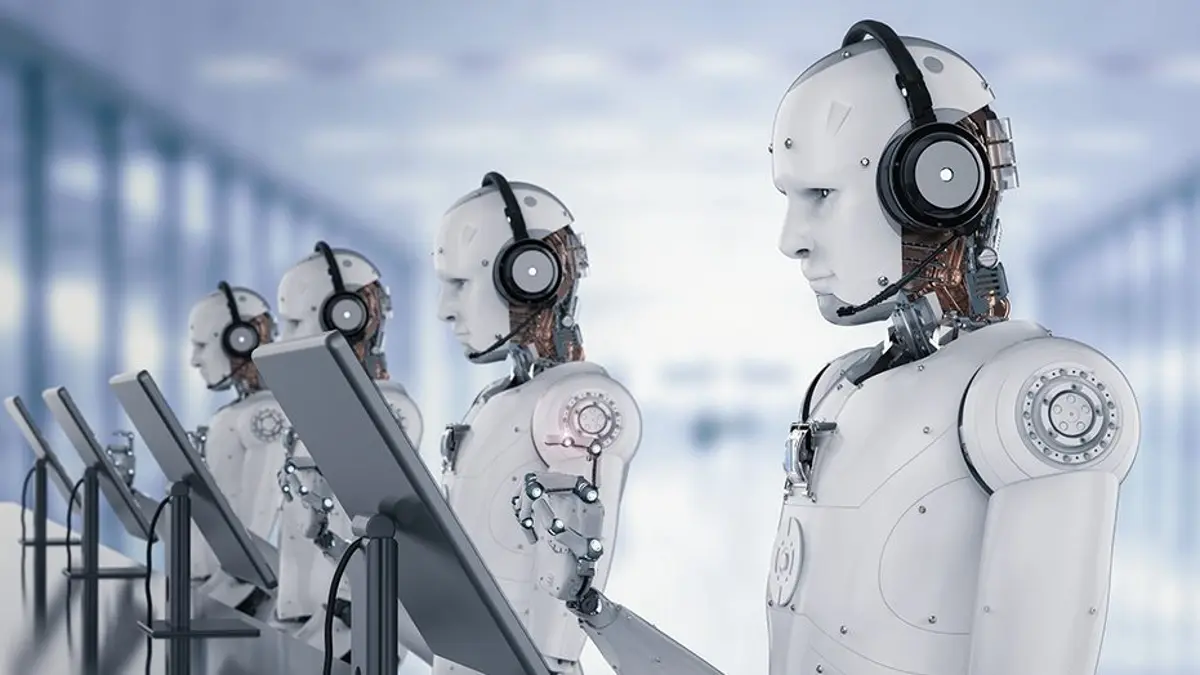By Zion Rufus
As new applications of Artificial Intelligence(AI) have the potential to transform various sectors of the economy via increased productivity and innovation, there are now concerns that these AI technologies such as smart assistants, robotics, marketing chatbots, machine learning, and automated financial investing that could disrupt sales processes in various industries, could also lead to mass marketing and technological unemployment, and drastically change the design of companies’ business models.
Stanislaus Martins, President, Association of Digital Marketing Professionals(ADMARP), revealed that while AI has the potential to revolutionize marketing as we see it in Nigeria, it also presents its own set of challenges for marketers “as it puts many of our jobs at risk”.
In his New Year message to members, the president shared: “As we move forward into the new year, I believe that there are many disruptive trends and challenges that we need to be aware of and prepared for as digital marketing professionals. One of these trends is the increasing use of artificial intelligence (AI) in the industry. As AI becomes more prevalent, it will be important for us to stay up-to-date on the latest developments and consider how we can use AI ethically and effectively in our work.”
A two-year study from McKinsey Global Institute revealed that by 2030, intelligent agents and robots could replace as much as 30 percent of the world’s current human labor. The McKinsey report suggested that, in terms of scale, the automation revolution could rival the move away from agricultural labor during the 1900s in the United States and Europe, and more recently, the explosion of the Chinese labor economy.
Furthermore, these AI technologies will also displace between 400 and 800 million jobs by 2030, requiring as many as 375 million people to switch job categories entirely.
However, marketers aren’t alone in this worry. As the widespread adoption of AI technologies continue to prevail, policy makers across the globe have also risen to the challenge of fostering
progress and innovation in AI while shielding workers and consumers from potential types of harm that could arise.
In a study on the impact of AI on the future of workforces in the European Union and the USA, the report revealed that although AI is a fast-evolving technology with great potential to make workers more productive, make firms more efficient, and spur innovations in new products and services, the technology can also automate existing jobs, exacerbate inequality, pose security risks and ethical concerns, and spur bias in healthcare, resulting in discrimination against workers and automation of nonroutine tasks, thereby exposing large new swaths of the workforce to potential disruption.
The report reads in part: “Examples that stem directly from AI’s control of information include privacy violations, creating anti-competitive environments, and behavioral manipulation by machine learning techniques that enable companies to identify and exploit biases and vulnerabilities that consumers themselves do not recognize. Further, there is the direct risk that workers will be displaced by AI via excessive automation, as there is no guarantee that the current pace of the development of AI tools will achieve the socially optimal mix of automation and augmentation of tasks.”
To mitigate these challenges, amongst other risks that these AI technologies currently pose, Governments are already moving toward more effective regulation of the impact of AI.







Comment
No comments found.